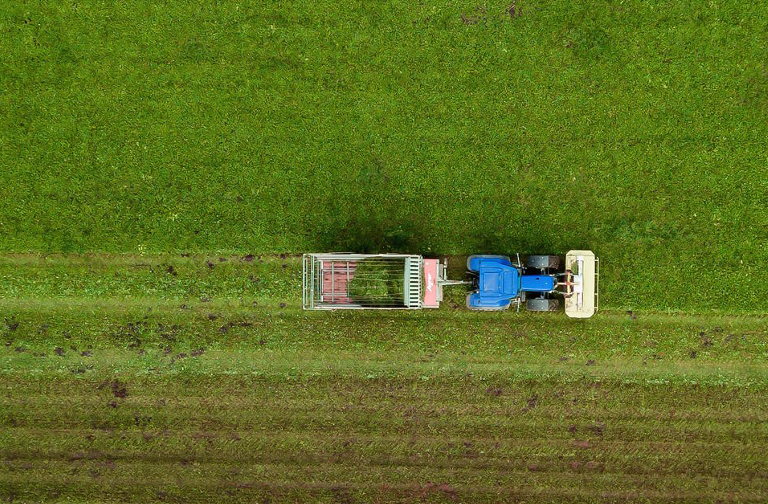Key messages
AGROECOLOGY: AN AMBITIOUS, SYSTEMIC PROJECT
Jointly addressing the challenges of ensuring sustainable food for Europeans, protecting biodiversity and natural resources, and mitigating climate change calls for a profound transition in our agri-food system. An agro-ecological project based on abandoning pesticides and synthetic fertilisers and redeploying extensive grasslands and landscape infrastructures would make it possible to tackle these challenges in a coherent manner.
AN ORIGINAL MODELLING OF THE EUROPEAN FOOD SYSTEM
The TYFA project explores the possibility of generalising agroecology at the European level by analysing the uses and requirements of agricultural production, both now and in the future. An original quantitative model (TYFAm), systemically comparing agricultural production, modes of production and land use, is used to retrospectively analyse the functioning of the European food system and to quantify an agro-ecological scenario for 2050 by testing the implications of different hypotheses.
PROSPECTS FOR A LESS PRODUCTION-ORIENTED AGRO-ECOLOGICAL SYSTEM
European diets, which are increasingly unbalanced and too rich, especially in animal products, are contributing to an increase in obesity, diabetes and cardiovascular disease. They are based on intensive agriculture, which is highly dependent on: (i) pesticides and synthetic fertilisers—with proven health and environmental consequences; and (ii) imports of plant proteins for animal feed—making Europe a net importer of agricultural land. Moving towards diets that contain fewer animal products therefore opens up prospects for a transition to a less productive agro-ecological system.
SUSTAINABLE FOOD FOR 530 MILLION EUROPEANS
The TYFA scenario is based on generalising agroecology, abandoning imports of plant proteins and adopting healthier diets by 2050. Despite an induced decline in production of 35% compared to 2010 (in Kcal), this scenario:
– feeds Europeans healthily while maintaining export capacity;
– reduces Europe’s global food footprint;
– results in a 40% reduction in agricultural GHG emissions;
– and helps to restore biodiversity and to protect natural resources.
Further research is underway on the socio-economic and political implications of the TYFA scenario.


